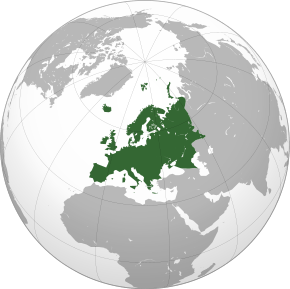Flag of Transnistria
The flag of the Pridnestrovian Moldavian Republic consists of three horizontal bands of red, green and red, of vertical width 3:2:3, with the golden hammer and sickle and a gold-bordered red star in the upper canton. Transnistria adopted this design that comprises a version of the 1952–1990 flag of the Moldavian Soviet Socialist Republic in the 2000 Law about State Symbols.
.svg.png) | |
| Use | State flag and ensign, war flag |
|---|---|
| Proportion | 1:2 |
| Adopted | 25 July 2000 (official) |
| Design | Three horizontal bands of red, green and red, with a hammer and sickle in the canton. Identical to the flag of the Moldavian SSR. |
 Variant flag of Transnistria | |
| Use | Civil flag |
| Proportion | 1:2 |
| Design | Three horizontal bands of red, green and red. |
 Variant flag of Transnistria | |
| Use | Presidential standard |
| Proportion | 1:1 |
| Design | Standard of the President of the Pridnestrovian Moldavian Republic. |
.svg.png) Variant flag of Transnistria | |
| Use | Civil flag, second national flag |
| Proportion | 1:2 |
| Adopted | 12 April 2017 |
| Design | Three horizontal bands of white, blue and red, based on the flag of the Russian Federation. |
History
The flag of the Moldavian Soviet Socialist Republic served as the republic's flag until the dissolution of the Soviet Union in 1991. When Moldova became independent, some places in Transnistria refused to fly the new Moldovan flag and continued to fly the flag of the Soviet Union. Continued use of the flag of the former Moldavian SSR was popular and it was officially reintroduced as the flag of Transnistria in 2000. Confusingly, despite the flag and coat of arms, Transnistria is not a socialist state. It is the only state in Europe that uses the hammer and sickle on its flag[1] (although the flags of Bryansk Oblast, Vladimir Oblast and Oryol city in Russia also have the hammer and sickle).
Usage
For government usage, only the state flag is valid. Transnistrian law permits the use of a simplified version of the flag for non-governmental use (personal and commercial usage) without the hammer and sickle and red star and without regard to shape or size. The most common size is still 1:2, but 2:3 versions have also been used.

White-blue-red tricolor
In 2009 the Parliament of Transnistria discussed a proposal to replace the civil flag (plain red-green-red) with a new flag, carrying three horizontal stripes in the colours white, blue and red, being almost identical to the flag of the Russian Federation, but with different aspect ratio (1:2 instead of Russia's 2:3).[2] The primary reason for the second flag is that it indicates Transnistria's desire for closer ties with Russia, a guarantor of Transnistria's independence from Moldova. In a 2006 referendum, 97.2% of Transnistrians voted in favour of increased association with Russia. The new flag would be used alongside the current state flag. On 12 April 2017, the Transnistrian Supreme Council passed a motion making the new flag Transnistria's second official flag.[3]
Other flags
The presidential flag is a 1:1, yellow fringed version of the civil flag with the coat-of-arms in the centre. It was adopted on 18 July 2000 and replaced an earlier version dating from 1997.
The army flag is a blue flag with a yellow bordered red cross.[4] It is similar to that of the Moldovan army, but does not include the Moldovan coat-of-arms.
A customs flag is also in use by Transnistrian customs. It is a primarily green flag with two red bands at the bottom. The central part of the flag is dominated by the symbol of Transnistrian customs.[5][6]
References
- "Hopes Rise in Transnistria of a Russian Annexation". Spiegel Online. Retrieved 25 November 2018.
-
Moldova.org: Transnistria considers broadening its state symbols Archived 18 August 2009 at the Wayback Machine (5 May 2009)
Supreme Council - parliamentary news: On state insignia (2 June 2009)
Supreme Council - parliamentary news: Reaffirming commitment to harmonization of PMR and RF legislation (28 May 2009) - education; born, in 2003-2007 Yuriy worked as a journalist in a Luhansk online media He was; Luhansk, lived all his life in the peaceful provincial city of (13 April 2017). "Transnistria frozen conflict zone recognizes Russian tricolor as second "national" flag -". Euromaidan Press. Retrieved 14 April 2017.
- Gaceta de Banderas
- "Archived copy". Archived from the original on 21 April 2012. Retrieved 15 December 2015.CS1 maint: archived copy as title (link)
- "Dniestr Republic (Moldova)". Flagspot.net. Retrieved 12 December 2017.

